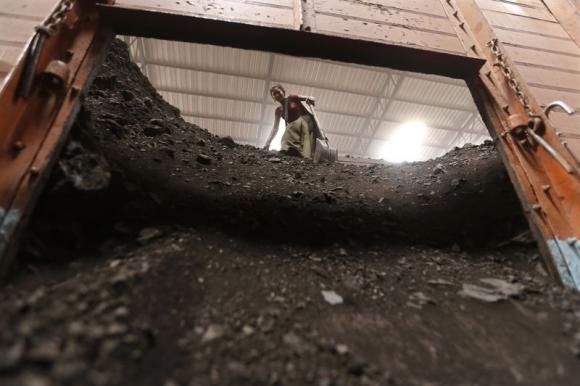
Power-strapped India may soon be able to get funds to operate its coal-based energy projects from the new China-sponsored investment bank, raising hopes after the World Bank had put a complete block on coal-fired power plants.
The Asian Infrastructure Investment Bank (AIIB), which is sponsored by China, of which India recently became a founding-member, could allow funding of coal-based power plants, Reuters reported. However, the bank's articles of agreements will be finalised only by the end of next year, China hinted.
The World Bank had cut off funding for coal-fired plants except in 'rare circumstances' last year in a bid to support 'low-carbon growth'. The move came close on the heels of the Obama administration's decision to stop funding for coal projects to fight climate change.
"When you have 1.3 billion people starved of electricity access and the rest of the world has created a carbon space, at this point denying funding is denying access to cheap energy," a senior Indian official told Reuters.
Coal generates three-fifth of India's power supply, and despite India having the world's fifth-largest reserve, it has fallen short of meeting electricity demands in the country.
India needs to invest $250 billion in the power sector by 2017 if it has to resolve its power crisis, Integrated Research and Action for Development had said.
However, World Bank Chief Jim Yong Kim reiterated the institution's stand of not funding coal-fired projects on Wednesday.
"We have got to redouble and redouble again our efforts at fighting climate change. And our way of doing it is to just do everything we can to avoid coal," Kim told Reuters in an interview.
While the World Bank has not made any fundings for coal-based power plants in the last two years under Kim's term, the Asian Development Bank has said it will selectively support coal-fired projects if cleaner technologies are adopted.
The Bank provided a $900 million loan to Pakistan last year to build a 600 megawatt-coal-fired plant.
The AIIB was proposed by China to meet funding requirements for infrastructure projects in the Asia Pacific region. China has put in the initial $50 billion in the bank that is being seen as a counter to western-backed financial institutions.
"Had the World Bank resourced its capital base, had the World Bank done reforms that are due, and ADB also resourced the capital base, perhaps there would have been no need to set up the (new) bank," the Indian official told Reuters.
Experts see the bank as being China's move to increase its political and strategic influence in Asia.
"Don't imagine for a moment that the AIIB is just about economics," Hugh White, professor of strategic studies at Australian National University, told Reuters.
"Asia really does need more infrastructure and there does need to be some new funding mechanisms, but it's also an opportunity for China to build its political and strategic leadership role in Asia."

















